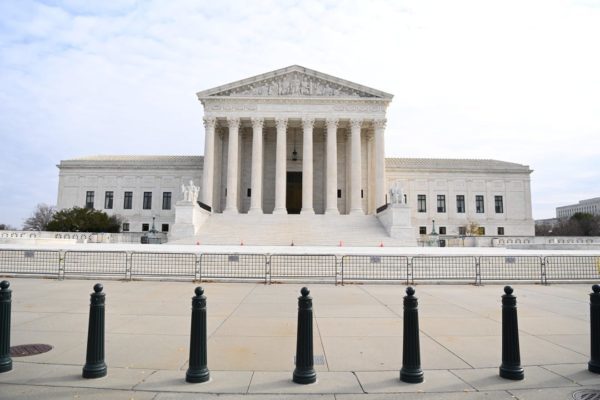By Pete Williams

WASHINGTON — The U.S. Supreme Court on Friday brushed aside the lawsuit filed by Texas that sought to overturn Joe Biden’s election victory in four battleground states.
President Donald Trump called the case “the big one,” and 126 of the 196 Republicans in the House urged the court to take it. But the justices acted quickly to turn it down.
“Texas has not demonstrated a judicially cognizable interest in the manner in which another state conducts its elections,” the court said in a brief unsigned opinion.
Justices Clarence Thomas and Samuel Alito said the court had no authority to refuse a case filed on its original docket, where one state files to sue another. But they said the would not have granted Texas any other relief and expressed no view on any of the issues raised in the lawsuit.
So the ruling was essentially a unanimous rejection of the Texas claims.
Supporters of the Trump campaign saw the Texas suit as their best hope for derailing a victory for Joe Biden before the actual presidential vote is cast by the Electoral College on Monday.
Never before had any state asked the court to do what Texas proposed, to nullify election results from other states. The lawsuit sought to delay the vote of presidential electors in Georgia, Michigan, Pennsylvania and Wisconsin, arguing that voting procedures in those states violated their own state laws.
Allowing them to cast their electoral votes, Texas said, would “cement a potentially illegitimate election result.“
Both conservative and liberal legal experts alike said the lawsuit had a fatal flaw, because Texas had no authority to claim that it was injured or that its own voters were affected in any way by election procedures in another state.
Pennsylvania made that point in urging the court to dismiss the case.
“Texas has not suffered harm simply because it dislikes the result of the election, and nothing in the text, history, or structure of the Constitution supports Texas’s view that it can dictate the manner in which four other states run their elections,” Pennsylvania said.
The other battleground states said allowing the lawsuit to proceed would invite lawsuits over virtually any future federal election.
“Texas proposes an extraordinary intrusion into Wisconsin’s and the other defendant states’ elections, a task that the Constitution leaves to each state,” the state said in its response to the suit. “Wisconsin has conducted its election and its voters have chosen a winning candidate for their state. Texas’s bid to nullify that choice is devoid of a legal foundation or a factual basis.”
NBC

Leave a Reply
You must be logged in to post a comment.